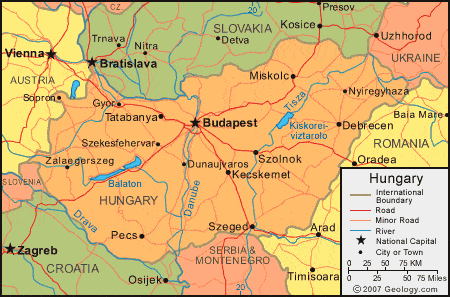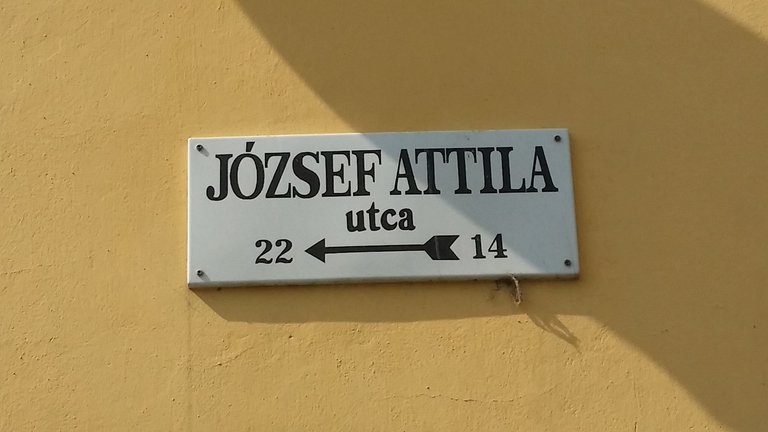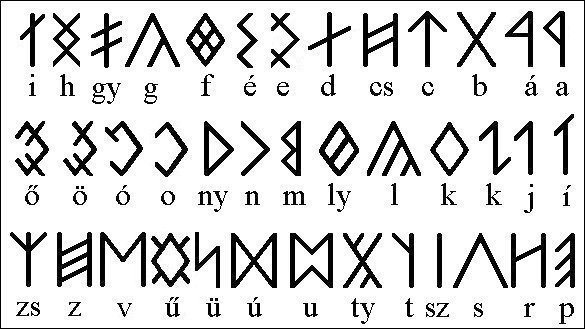I met my wife in British Columbia, Canada, in September 2008. She is from Hungary, I am from France.
Since then, I have been to Hungary 8 or 9 times, basically once every year.
We are currently there, visiting her family, for her sixtieth birthday TODAY! Like every year for her birthday, I brought her coffee in bed.
I am going to make some observations about Hungary, Hungarians and the Hungarian language.
I hope I will not offend any Hungarians that are on Steemit. Or my wife who told me that she will check this post.
Hungary
For those of you that ignore geography, Hungary is a country in Eastern Europe.

source
Hungary has borders with seven other countries: Austria, Slovenia, Croatia, Serbia, Romania, Ukraine and Slovakia.
The foundation of Hungary was laid in the late 9th century by the Hungarian grand prince Árpád. His great-grandson Stephen I ascended to the throne in 1000, converting the country to a Christian kingdom. By the 12th century, Hungary became a middle power within the Western world, reaching a golden age by the 15th century. [After] 150 years of partial Ottoman occupation (1541–1699), Hungary came under Habsburg rule [and was incorporated into the Austro-Hungarian Empire until World War II].
Many Hungarians consider that the so-called Austro-Hungarian Empire was not an alliance of equals and that Hungary was dominated by the Austrians. A large castle was built in Budapest, but the emperors never resided there, except for very short visits.
Hungary's current borders were established in 1920 by the Treaty of Trianon after World War I, when the country lost 71% of its territory, 58% of its population, and 32% of ethnic Hungarians.
I have been reminded that by my wife multiple times as she blames France, Great Britain and the United States.
The interwar was a period of great political turmoil, starting with a short communist regime and ending with a nazi-like one, with ties with Germany. Hungary joined Germany and Italy during World War II and suffered significant damages and casualties.
After World War II, Hungary became a satellite state of the Soviet Union as a socialist republic from 1947 to 1989.
In 1989, Hungary became a democratic parliamentary republic.
I heard this joke last week: God shows his love by sending hardships to his children; then, he must love Hungary very much, considering its history during the last 500 years!
Hungarians
It is my impression that Hungarians consider Hungary to be both a nation-state and a community of people joined by the use of the Hungarian language (Magyar nyelv, a common history and a common culture.
They consider that people speaking Hungarian in Transylvania (now part of Romania), Slovakia and other countries are Hungarians.
Hungarian Names
Consider this street sign, that I shot in Pécs:

"utca" means "street".
For the name of this street, it is not difficult to guess that "József" is the Hungarian version of "Joseph".
So, if you are new to Hungarian culture, you would guess that Joseph is the first name and Attila the last name of some Hungarian.
And you would be wrong!
Hungarian always start with the general followed by the particular: József is the last name and Attila is the first name.
In fact, the English Wikipedia entry is Attila József, who is the best known of the modern Hungarian poets internationally. He died in 1937 at the age of 32, either by suicide of by accident.
For addresses too, Hungarians start with the general followed by the particular: city, then street, then number.
An address in this street would be for example:
- Pécs, József Attila u. 14
Hungarian Language
Hungarian is the official language of Hungary and one of the 24 official languages of the European Union. Outside Hungary it is also spoken by communities of Hungarian people in neighbouring countries (especially in Romania, Slovakia, Serbia and Croatia), and by Hungarian diaspora communities worldwide.
Hungarian is the most widely-spoken European language that does not belong to the Indo-European family. It is related to Finnish and Estonian, and belongs to the Uralic language family.
Hungarian is spoken by around 13 million people in the world. The population of Hungary is less than 10 millions.
It has always be written with an alphabet.
The old Hungarian alphabet, sometimes called Hungarian runes, was widely in use until the 10th century when it was partly forced out of use and the Latin alphabet was adopted.

source
The current alphabet use Latin letters, some of them with diacritic marks, such as the 'ó' in József.
Two days ago, my wife asked me the numbers of letter in the French alphabet. My answer was 26.
She then declared proudly that the Hungarian alphabet has 42 letters.
After some arguments, I discovered that Hungarians consider letter with diacritic marks and some diphthongs such as "zs" or "gy" to be distinct letters. Hence the number of 42 letters.
If I use the same convention for the French language, I can easily attain the same number of "letters".
One characteristics of the Hungarian language is that, similar to Esperanto, the pronunciation of a word is completely described by its spelling, except for foreign words of course. This is not the case in French or in English.

Örömmel látom a rovásírást! Természetesen én is ismerem, néha gyakorlom.
Glad to see Hungarian "rovas". I know and practise it as well.
Glad to finally find a Hungarian on Steemit!
Köszönöm megjegyzését.
i forgot to scroll down last night :D
so I missed out on this
I was wondering why Hungary of all places
that explains it
for your age ..and I mean still young
that's very romantic!
I dont think this is a joke "God shows his love by sending hardships to his children; then, he must love Hungary very much, considering its history during the last 500 years!". Look at Russia. I think countries like the US, Britain and France have been living in comfort for a long time. Their power is fading as the dominance of nations once considered not so strong soars(China and Russia). Anyway in recent years the Hungarian border has been a hot topic. Its fantastic to see a people willing to protect their country.
Thank you for your comment.
Your comment about Hungarian pronunciation is true of other languages too - Spanish is pronounced just as it is written.Great post @vcelier. I had the pleasure of visiting Budapest exactly 3 years ago and fell in love with it and her culture and people. The Spas are wonderful. I also loved the 'Chimney cake'.
Thank you.
Yes, I am sure that there are other languages, such as Spanish, that are pronounced as they are written. I just cited Esperanto, because at some point I learned the language.
I am from Hungary as well. It makes me happy to see posts about Hungary or to find others with Hungarian connections. Have a good time in Hungary.
Well thank you, but I left Hungary a week ago and I am back to British Columbia today.
nice....your post deserve upvote and resteem...
Thank you.
u r welcome
So interesting, I used to live in Nagymaros, near Slovakian border. Beautiful place. Thanks for the post!
You are welcome.
I see that you are now in Sweden. What were you doing in Nagymaros?
Basically hanging out at my friends, having an extended vacation :) Super pretty place, the Danube, the mountains, peaceful, clean and quiet.